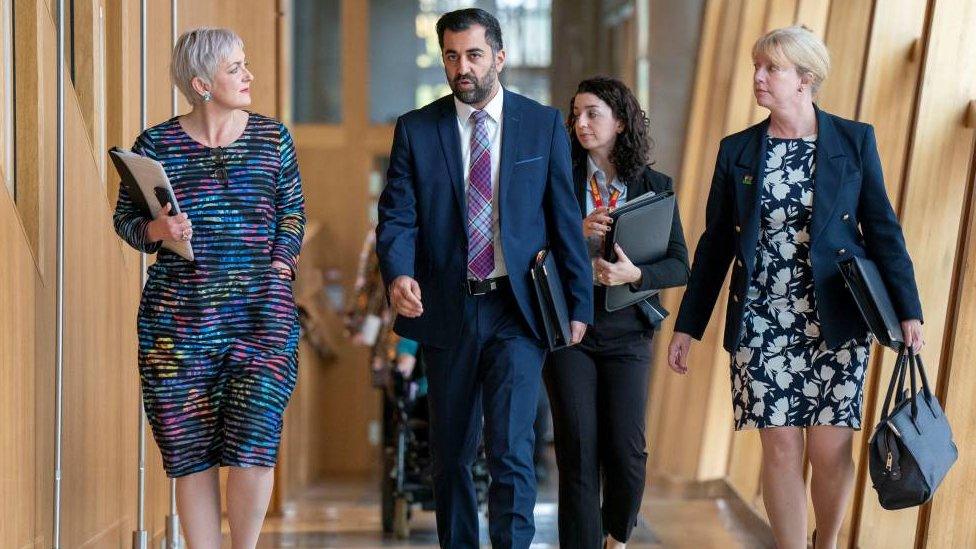Covid in Scotland: What happened in lockdown and beyond?
- Published
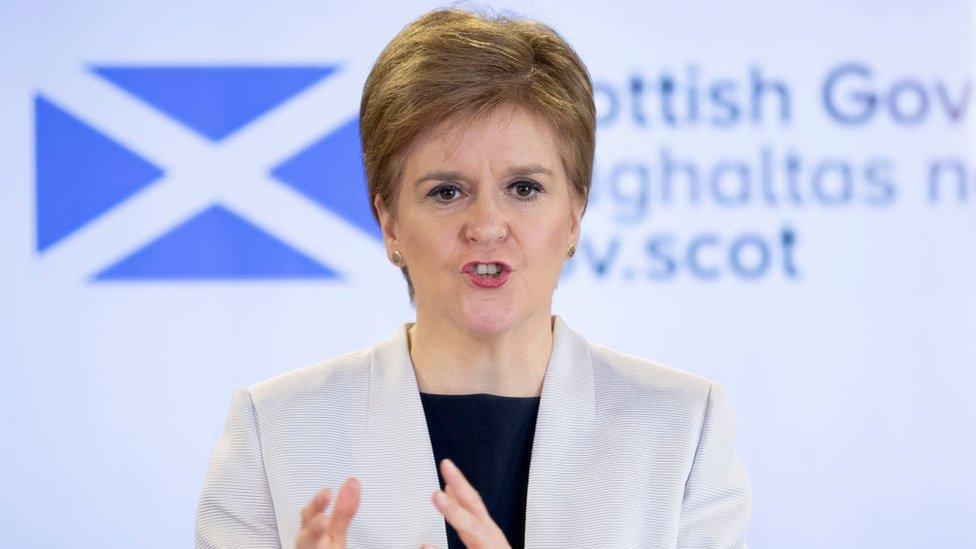
Former First Minister Nicola Sturgeon began daily Covid briefings in March 2020
The news that Scottish ministers and officials have deleted Whatsapp messages from the pandemic period could affect the work of both the UK and Scottish Covid inquiries.
Much of what the inquiries are trying to find out rests upon what was being discussed at the highest levels of government during the height of the pandemic. The timing of the deletions and how they fit into the overall timeline of the Covid years is already coming under enormous scrutiny.
The gathering storm
2019
1 December: First cases of flu-like respiratory illness are identified in the Chinese city of Wuhan.
31 December: A briefing from medical authorities in Wuhan mentions an outbreak of "pneumonia" there.
2020
6 January: The US Centers for Disease Control and Prevention (CDC) issue a travel notice for Wuhan and Hubei province.
11 February: World Health Organisation (WHO) names the illness Covid-19.
1 March: First Scottish case confirmed.
3 March: Joint action plan published by all governments of the UK.
11 March: First case of community transmission recorded in Scotland.
13 March: First confirmed death of a patient with Covid-19 in Scotland.
16 March: All indoor and outdoor events of 500 people or more cancelled. UK government begins daily media briefings
Lockdown and first responses
19 March: Scottish government announces the closure of all schools and nurseries within days.
20 March: UK government orders all pubs, restaurants, gyms and other social venues across all the nations to close.
22 March: First daily media briefing by First Minister Nicola Sturgeon.
23 March: Prime Minister Boris Johnson, in a televised address to the whole of the UK, announces total lockdown with legally-enforced restrictions on travel, work, and the right to be outdoors.
24 March: First day of lockdown.
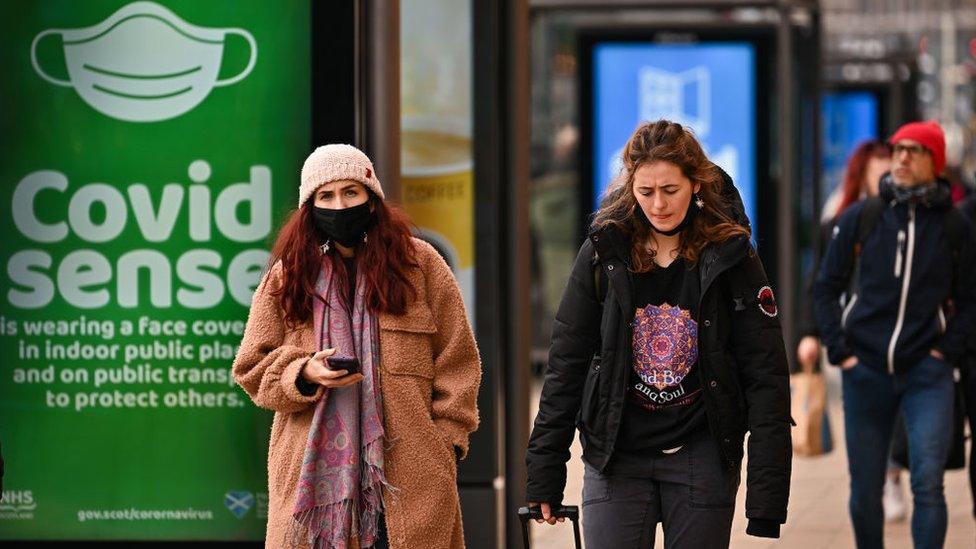
Public messaging became a vital part of both the UK and Scottish governments' pandemic strategies
26 March: Scottish government produce updated clinical guidance for nursing home and residential care residents.
5 April: Scotland's Chief Medical Officer Catherine Calderwood resigns after making two trips to her second home during the lockdown.
10 April: The global death toll surpasses 100,000.
20 April: NHS Louisa Jordan hospital opens in Glasgow.
6 May: First recorded reduction of number of deaths in Scotland.
12 May: Prime minister announces UK inquiry into Covid.
13 May: UK government lessens restrictions on outside exercise for people in England.
'Route map' out of lockdown
21 May: Scottish government publishes a Covd-19 "route map" to take Scotland through and out of the pandemic.
15 June: Opening of shops in England.
19 June: "Phase Two'" begins in Scotland, allowing re-opening of shops and other businesses.
10 July: Scotland enters Phase Three of the route map out of lockdown
3 August: "Eat out to help out" scheme introduced.
11 August: Pupils return to Scotland's schools.
9 October: Regional restrictions introduced.
2 November: Start of "levels" approach with local restrictions aimed at curbing the spread of the virus. This becomes known as the "second lockdown".
Final lockdown
2021
5 January: Mainland Scotland enters lockdown.
12 May: UK Covid inquiry announced.
17 May: Most of mainland Scotland enters Level 2, with fewer restrictions.
5 June: Most of mainland Scotland (except for the central belt) enters Level 1.
19 July: Scotland enters Level 0.
9 August: Scotland moves beyond Level 0, effectively ending all restrictions.
24 August: First Minister Nicola Sturgeon announces there will be a separate Scottish Covid inquiry. When asked, she commits to disclosing "emails, WhatsApps, private emails" to the inquiry.
30 November: First confirmed case of Omicron variant in Scotland
The road to recovery
2022
11 January: Scottish government announces large outside events can resume without social distancing.
14 January: Number of people in Scotland who have died within 28 days of testing positive for Covid passes 10,000.
25 January: Hybrid working resumes in organisations across Scotland.
28 February: High school pupils and staff no longer have to wear masks.
18 March: International travel restrictions end.
30 April: Testing centres close and contact tracing ends.
29 July: The UK Covid inquiry issues protocol that refers to the Inquiries Act 2005 - which says it's an offence to destroy a document that may be of interest to an inquiry.
5 August: Scottish inquiry issues more than 150 do not destroy letters to organisations.
25 September: Weekly testing ends for health and social care workers.
8 December: The Scottish government announces that more than 14.9 million doses of the Covid-19 vaccination have been administered in Scotland.
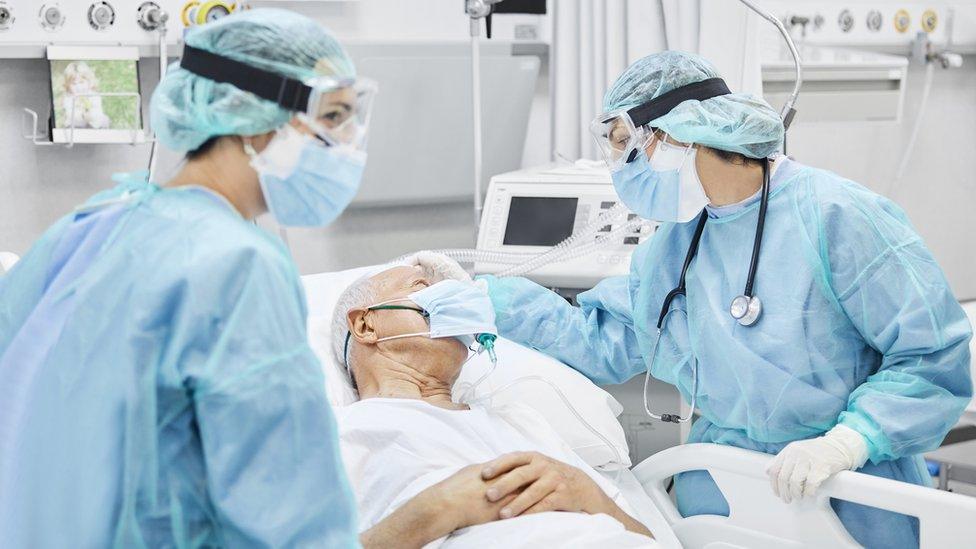
The pandemic put unprecedented strain on medical services across Scotland and the rest of the UK
Question time
2023
5 May: The WHO declares that Covid-19 no longer constitutes a public health emergency of international concern.
30 May: Downing Street denies accusations of a cover-up over the release of Boris Johnson's WhatsApp messages to the Covid Inquiry.
1 June: Mr Johnson says he has handed over his WhatsApp messages.
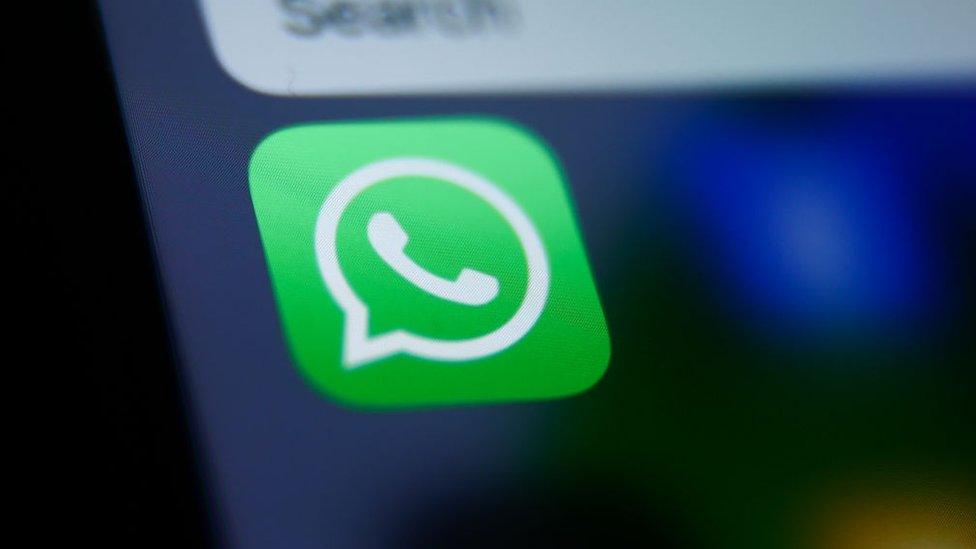
Ministers' use of the WhatsApp messaging app has now come under close scrutiny
13 June: First public session of UK inquiry.
25 October: First public session of Scottish inquiry.
26 October: Scottish ministers accused of not handing over messages to the UK inquiry. The Times newspaper reports that Scotland's national clinical director, Prof Jason Leitch, deleted his Whatsapp messages daily throughout the pandemic.
29 October: The Sunday Mail says WhatsApp messages sent by Nicola Sturgeon relating to the Covid pandemic were manually deleted from her phone.
- Published31 October 2023
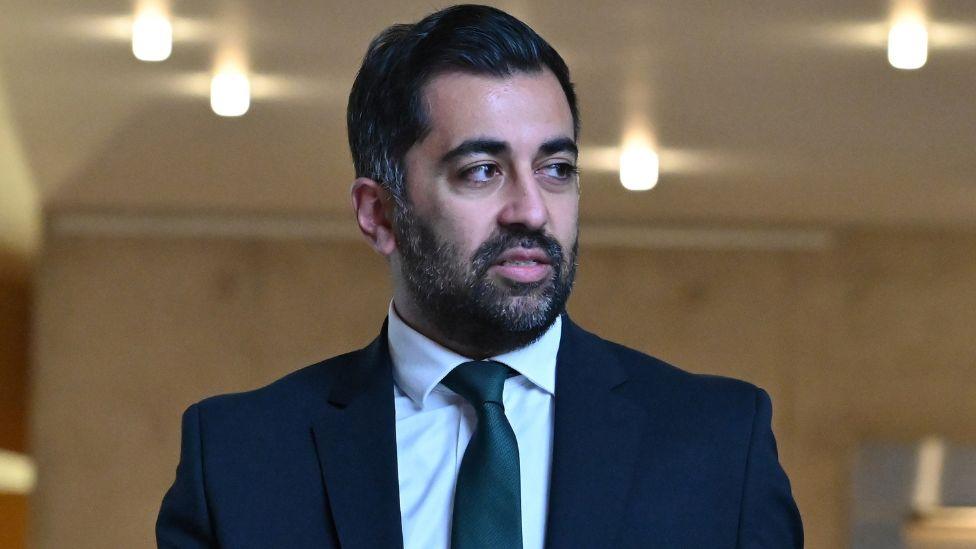
- Published29 October 2023
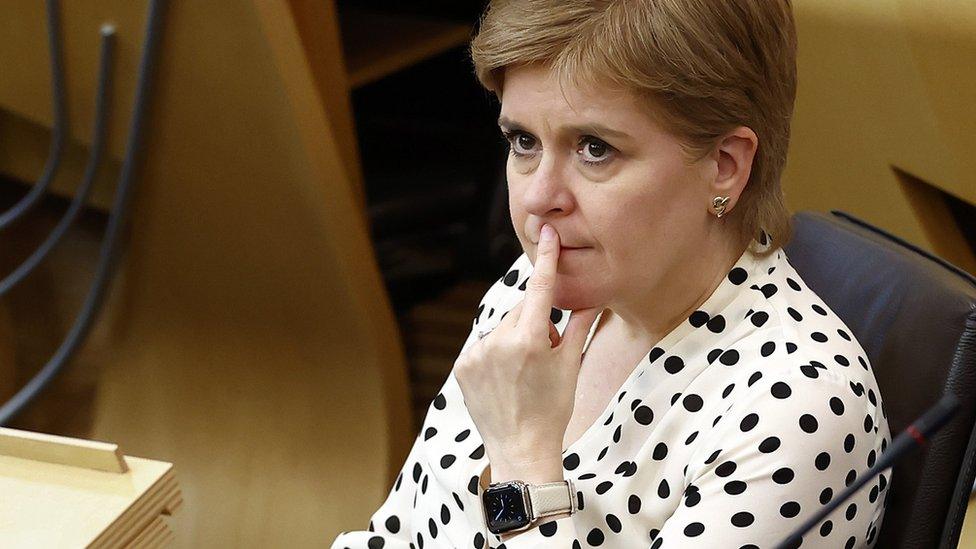
- Published26 October 2023
